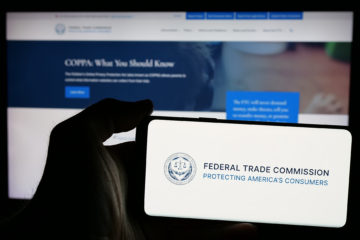The Federal Trade Commission (FTC) under Lina Khan and the Justice Department’s Antitrust Division, led by Jonathan Kanter, are intensifying their focus on what they term “serial acquirers.” These are companies that grow by acquiring or merging with smaller businesses, often in the same industry. Khan and Kanter, as leading figures in the “neo-Brandeisian” movement, believe that such acquisitions, even when small in scale, can accumulate to create market dominance that stifles competition. To combat this, they’ve issued a Request for Information (RFI), asking a broad range of stakeholders to help identify potential targets for their antitrust enforcement.
However, this approach is fundamentally flawed. Serial acquisitions are not inherently harmful; in fact, they often enhance competition by allowing smaller companies to achieve economies of scale and attract capital investment. These mergers empower businesses to innovate, grow, and effectively compete against larger, established players. Ironically, Khan’s crusade against these mergers could lead to less competitive markets, harming consumers and stifling innovation, especially in industries like tech and retail where scale is crucial to success. In a new article at Real Clear Markets, Market Institute President Charles Sauer writes:
“Federal Trade Commission (FTC) Chair Lina Khan and Justice Department Antitrust Division Head Jonathan Kanter, the dynamic duo of the “neo-Brandeisian” movement that seeks to restore the old “big is bad” approach to antitrust, are seeking help in identifying their next targets. On May 24, the FTC and the Justice Department’s Antitrust Division issued a Request for Information (RFI), asking “consumers, workers, businesses, advocacy organizations, professional and trade associations, elected officials, and academics or other experts” to help identify “serial acquirers.”
Serial acquirers are businesses with a pattern of acquiring or merging with other businesses in the same industry. These acquisitions are often not large enough to require approval by federal antitrust enforcers, but according to Khan, Kanter, and their allies, the combined effects of these acquisitions could make the acquiring firm large enough to exercise monopoly power. Therefore, the FTC and Antitrust Division must be vigilant to identify and stop serial acquisitions.
Ironically, the crusade against the acquisitions may actually make markets less competitive. This is because combining with other small companies in the same or similar industry gives the small companies the ability to take advantage of economies of scale, as well as to attract capital investments they can use to improve their business, enabling them to more effectively compete with their larger rivals.
For example, the FTC is challenging the merger between handbag manufacturers Tapestry (owner of Coach, Kate Spade, and Stuart Weitzman) and Capri (owner of Michael Kors, Versace, and Jimmy Choo). The FTC says Tapestry is a serial acquirer that must be stopped before it achieves total dominance over the “affordable” luxury market. But there is no such thing as the “affordable” luxury market for handbags. “Affordable” luxury is a marketing term coined by Tapestry to help it better compete with the major European handbag manufacturers like Louis Vuitton and Gucci. The Tapestry-Capri merger will strengthen competition by enabling the company to better compete with both the luxury handbag lines and the “mass market” handbags.”
Read the full article at Real Clear Markets by clicking here.


